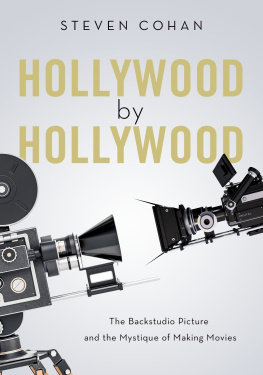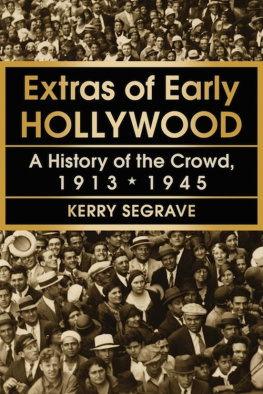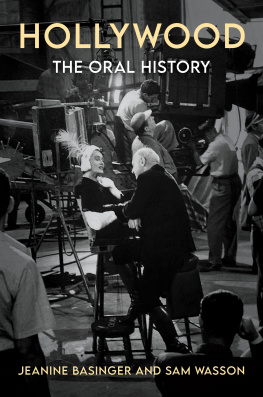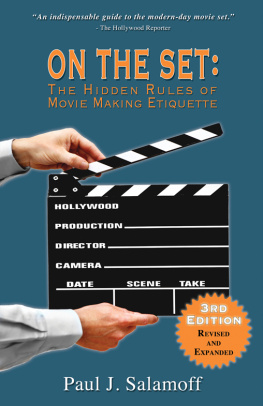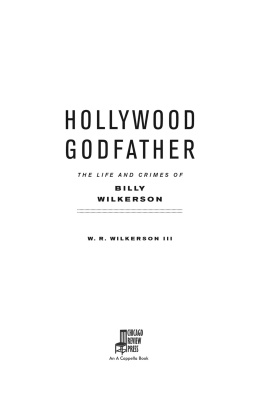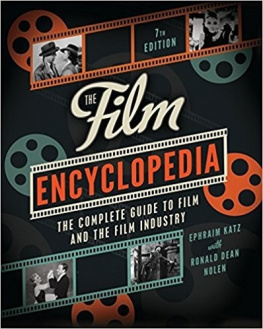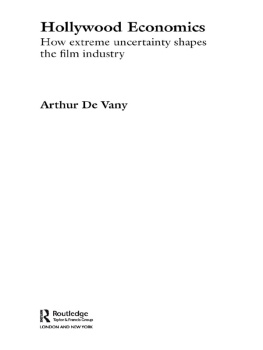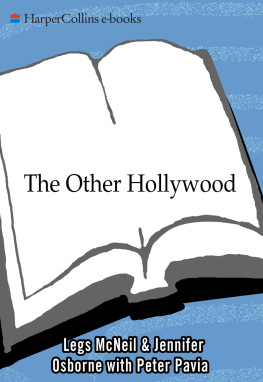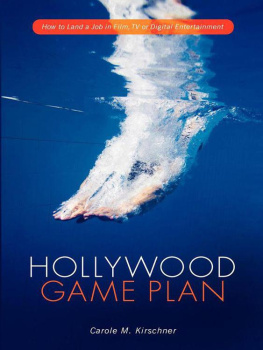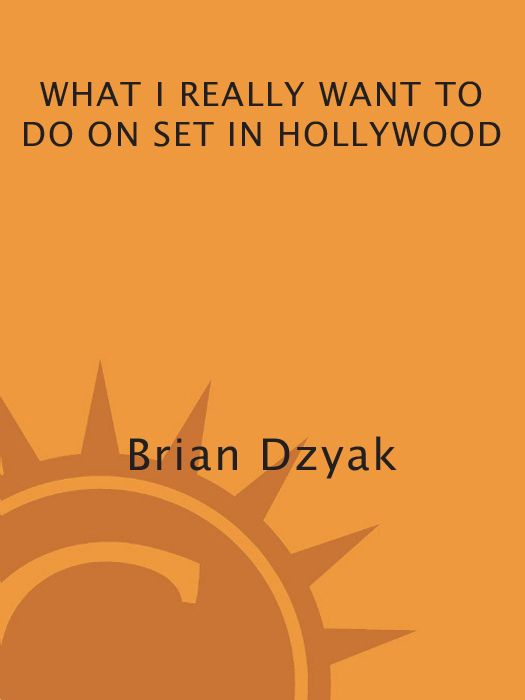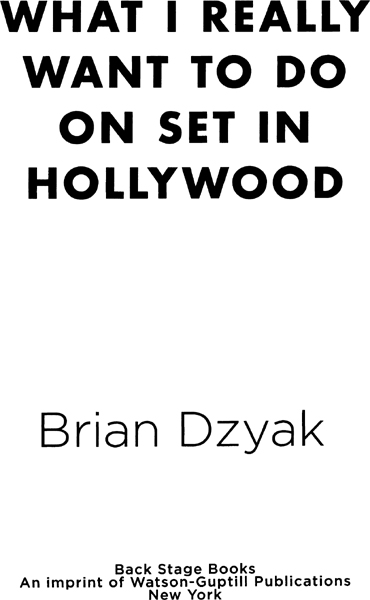Acknowledgments
Just like a movie, this book couldnt have been completed without the help and cooperation of many skilled and knowledgeable people. Information has come from a large variety of sources both on and off set, and, for a variety of reasons, the list is not inclusive of everyone who has contributed. I specifically want to thank the following, who generously gave their time to help make this a useful and valuable resource:
Dean Cundy, Director of Photography, A.S.C.; Matt Jenson, Director of Photography; Peter Hapke, Camera Operator; C. E. Courtney, Gaffer; Dennis White, First Assistant Director; Mike Demerrit, Assistant Director; Leigh Killberg, Production Coordinator; Marissa Pollack, Production Assistant; Jerry Henry, Transportation Coordinator; Gabriella McKenna, Standby Painter; Tasha Oldham, Director and Script Supervisor; Philip Hoffman, Production Designer; Meredith Korn, On-Set Dresser; Carrie Urzua, DGA Trainee; Todd Russell, Boom Operator; Keith Campbell, Stuntman/Coordinator; Dominique Jaramillo, On-Set Medic; Zade Rosenthal, Unit Still Photographer; Greg Kawecki, Second Assistant Director; Evan Nesbitt, Director of Photography/DIT; Joel Harlow, Special Effects Makeup Artist; Greg Sanger, Leadman; Tom Acosta, Greens; Ron Bolanowski and Darrell Burgess, Special Effects; Nancy Sykes and Leah Amir, Crafts Service; Charlene Amateau, Costume Supervisor; Josh Stickler, Production Assistant; Sherri Perry, Hair Stylist; Josh Elliot, On-Set Dresser; Tommy Tomlison, Property Master; Lori Harris, Costumer; Ross Addielo, Dolly Grip; Ben Younger, Director; Steve Pink, Director; David Linck, Publicist; Ernie Malick, Publicist; Mary Vogt, Costume Designer; Bob Roe, First Assistant Director/Producer; John Lowe, Locations; Lisa Blond, EPK Producer; Patty Foy, Studio Teacher; Mark Yacullo, Transportation Coordinator; and Tom Wilson, Actor.
A very special thank you to Producer Sean Perrone for believing in this and helping me to the next step.
Special thanks to my literary agent, Lilly Gharemani of Full Circle Literary, for also believing in What I Really Want to Do. Thank you for your patience in guiding me in my first time through the publishing process.
Thank you to my editors at Watson-Guptill, Bob Nirkind and Gary Sunshine, for helping me bring the book into focus.
Thanks to everyone at Watson-Guptill for taking a chance on this book and this concept.
A very special thank you to Susan Greenawalt Joba for your countless hours of editorial input and for providing a much-needed outsiders perspective. Not only would this book have been far less without your love, dedication, generosity, and support for me and for this project, but it might not have been finished at all. Your strength is a continued inspiration. You always told me how much you loved my words. Lets hope that there will be much more to come for both of us.
Thank you to my parents for always believing in, encouraging, and never giving up on me.
Thank you to Karen, for having patience through the ups and downs that define this tumultuous industry. If I (we) had only known even half of what is in this book before we moved from Ohio Thank you for believing in me, not only with this book.
Part I
THE BUSINESS REALLY!
What I Really Want to Do
What I Really Need to Know
Where I Really Need to Go
What I Really Need to Have
What Am I Getting Myself Into?
Chapter 1
What I Really Want to Do
I want to make movies! What else is there to talk about?
Okay, lets cut to the chase. If youre reading this, you really want to know how to get a job in the entertainment industry, be it in movies, television, music videos, or commercials. You want to know where to go, what to do, and who to meet. Fair enough. You need answers to these questions if this is the field you believe you want to enter.
But theres one question that most people who want to be in the business fail to ask themselves before jumping in: Do I really want to do this? Success can bring great prestige at your next class reunion and perhaps even lots of cash. But theres more to a career in the entertainment business than just showing up and making movies. Breaking in takes enthusiasm and perseverance. Maintaining a viable career begins by being realistic about what youre really getting yourself into.
Every year, millions of people watch the glamour of Hollywood from the comfort of their own homes and dream of sharing in a piece of that fantasy. And every year, thousands of those people pack their bags and head west, with little more than dreams and enthusiasm, intent on finding a job that will make them rich and famous. Some hit upon the success they are looking for, but many more do not. The expectations are almost always different than the harsh reality of life in the biz. However, with just a little guidance, you can increase the odds of building a successful career and finding that fame, fortune, and artistic outlet you crave.
What is this book really all about?
What I Really Want To Do on Set in Hollywood gives you a taste of the experience of working on a movie SET by explaining the nuts and bolts of the industry, the various departments, the jobs within the departments, and how they all interact with one another on a shot-by-shot basis. With this detailed information in your hands, you will then have a very good idea of how the industry really functions, how you can find a way in for yourself, and what your own life will be like while doing it.
Whether you are a college grad in the Midwest, a thirty-something parent of two along one of the coasts, or an already established member of IATSE, SAG, the DGA, or the T EAMSTERS in Los Angeles, knowing more about the minutia of how movies are really made will enable you to embark on a career path in a much wiser fashion.
So where do I start?
To get your career search going, you first have to figure out what it is you really want to do. It isnt enough for you to say that you just want to make movies. That kind of general ambition is fine when youre young and just having fun, but creating an actual career that pays your bills and affords you the lifestyle youre looking for requires you to be more specific. All of the jobs done on a small student film are still involved in making a big-budget projectonly when more money is available, more people can be brought in to help. Consider Hollywood as the major league of the entertainment business, where art and commerce are merged within the world of high finance. Its the ultimate playground, where big kids get to play make-believe with the best toys at the highest level.


